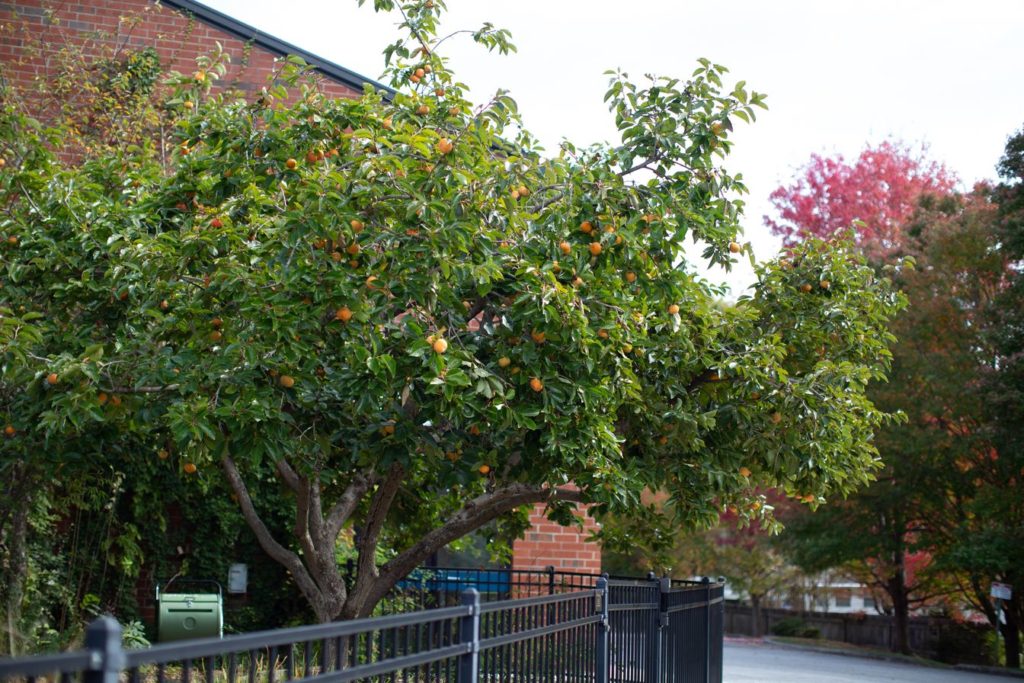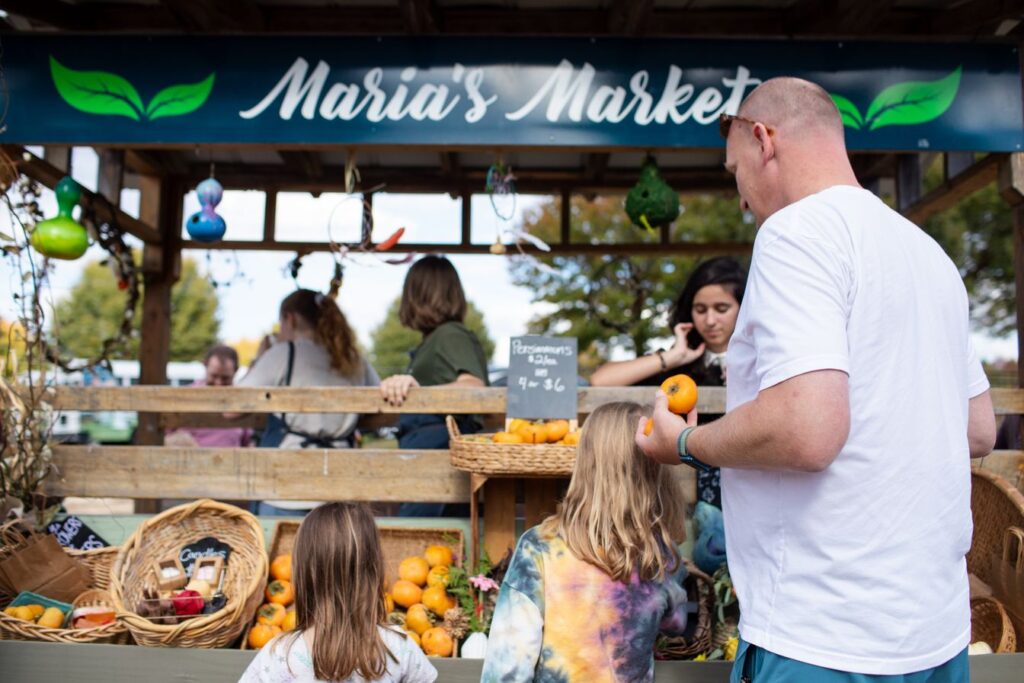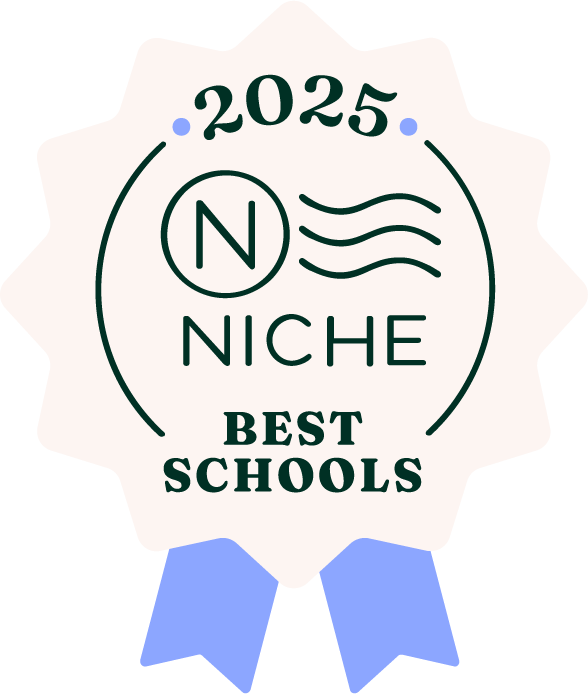You may have noticed an unusual orange fruit popping up everywhere on campus. You may even have asked, "what is that?"
Originally from Asia, and morphologically considered a berry, the persimmon is a lovely fruit that matures to a deep orange color in late Autumn. If you’ve ever visited Greensboro Montessori School's Primary Garden, you’ve probably noticed our beloved persimmon tree, planted over 20 years ago by master permaculturalist, Charlie Headington. In the years since, this tree has been lovingly pruned and harvested by our favorite garden coordinator, car line greeter, facilities assistant, and student support pal, Aubrey Cupit.

Generations of GMS students share a collective nostalgia for the flavor of the persimmon. To them, it seems a rare, exotic fruit with notes of magic and pure joy only attainable from our grounds. Students begin asking for persimmon snacks in our Environmental Education classes on the very first day of school, and then every subsequent day until we cut into the first ripe persimmon in October. It would be difficult to adequately describe the infectious wave of excitement when our students find out we are having persimmons for snack.

A firm persimmon tastes like a combination of honey, peach, and mango, with earthy undertones and the texture of an apple. For those unfamiliar with this fruit, I would recommend eating it raw, just like an apple, skin and all. Others prefer to bake softer persimmon pulp into pancakes, bread, or cookies. Persimmons work well in savory applications such as persimmon vinaigrette and other meat-based dishes akin to pork and apples. Dehydrated persimmon pulp creates a delicious fruit leather, while dehydrated persimmon slices make an excellent snack.
Each of the five persimmon trees on campus have produced bountiful fruit this season! Our students have reveled in their tastings during Environmental Education lessons and our Junior High Culinary Arts team has been baking with them voraciously! Word on the street is there's a tasty recipe for persimmon scones going around.
Additional Resources
- NPR: Ancient Japanese Food Craft Brings Persimmons To American Palates
- Martha Stewart: 13 Persimmon Recipes Everyone Should Make This Fall
- Wikipedia: Persimmon


